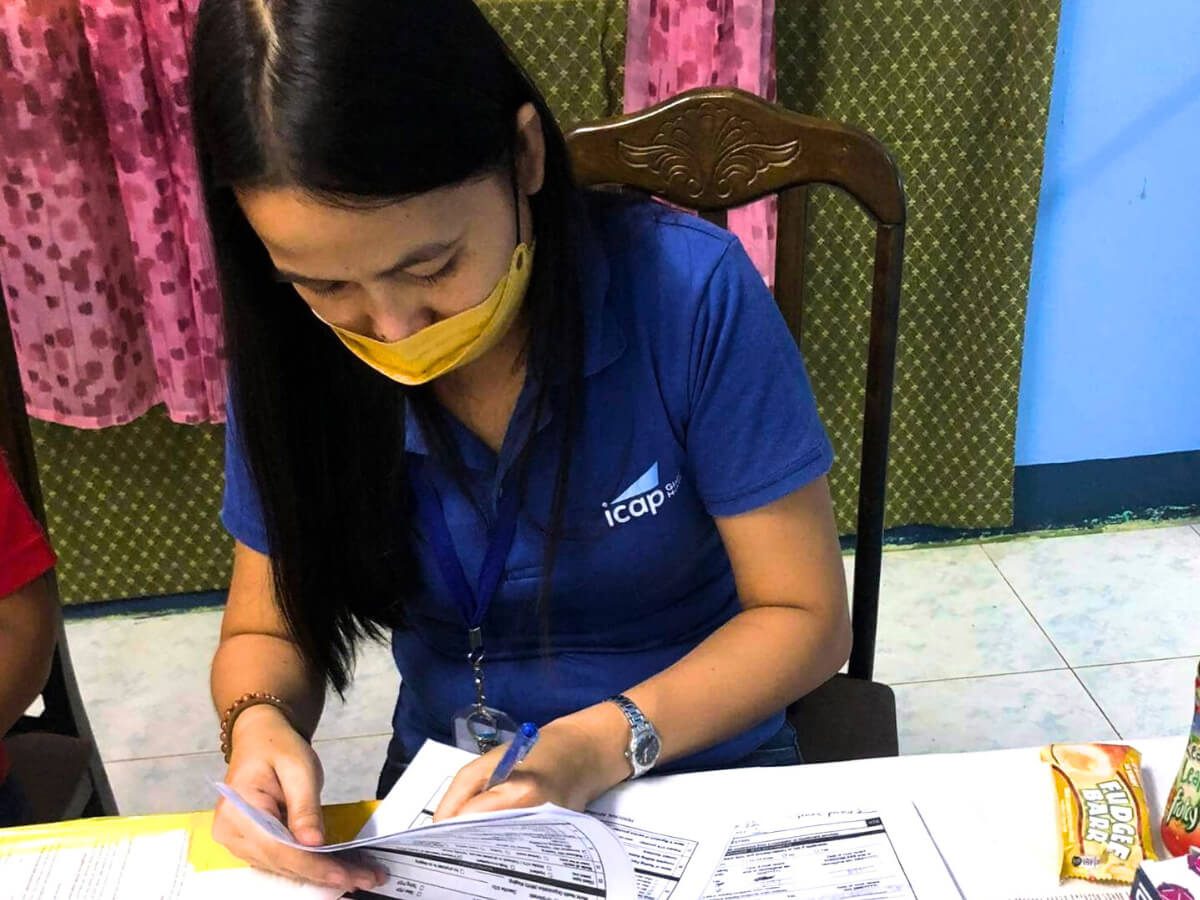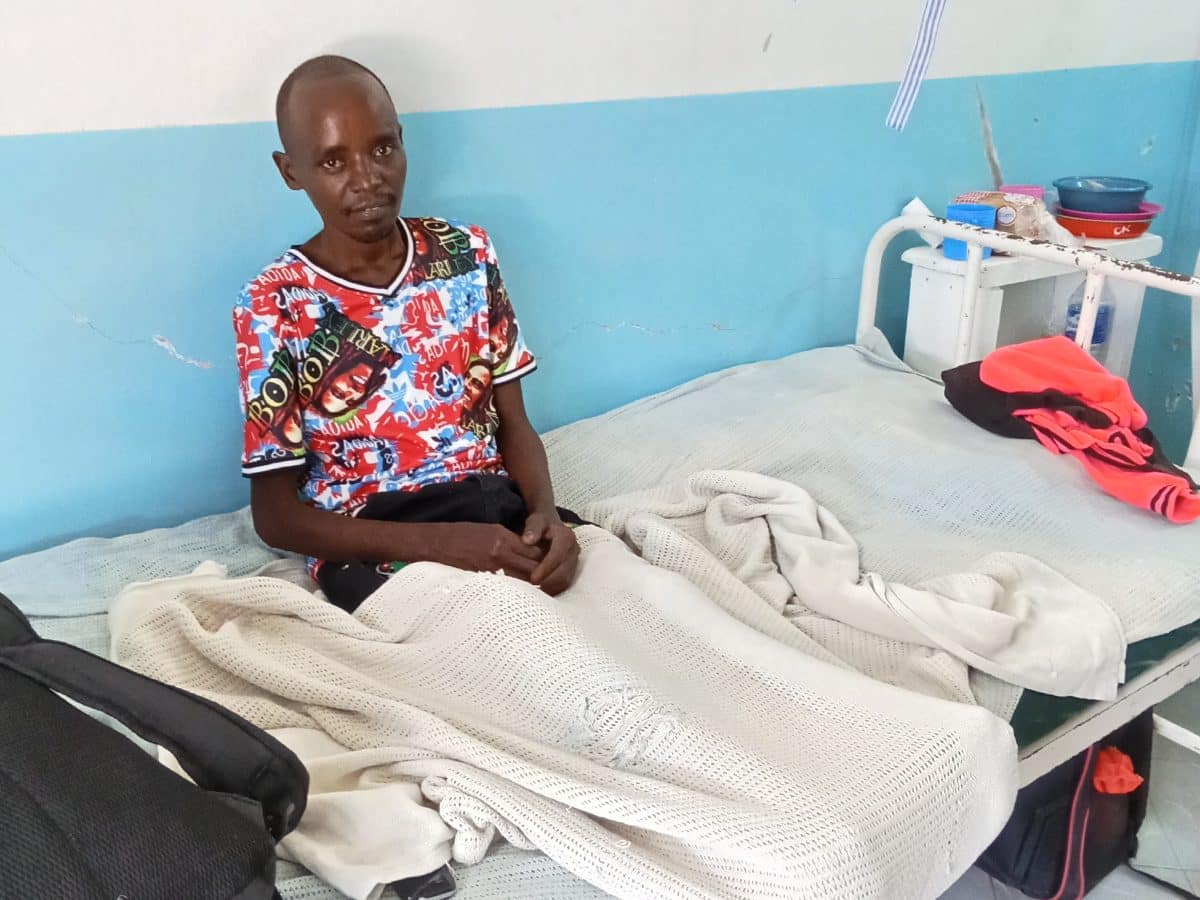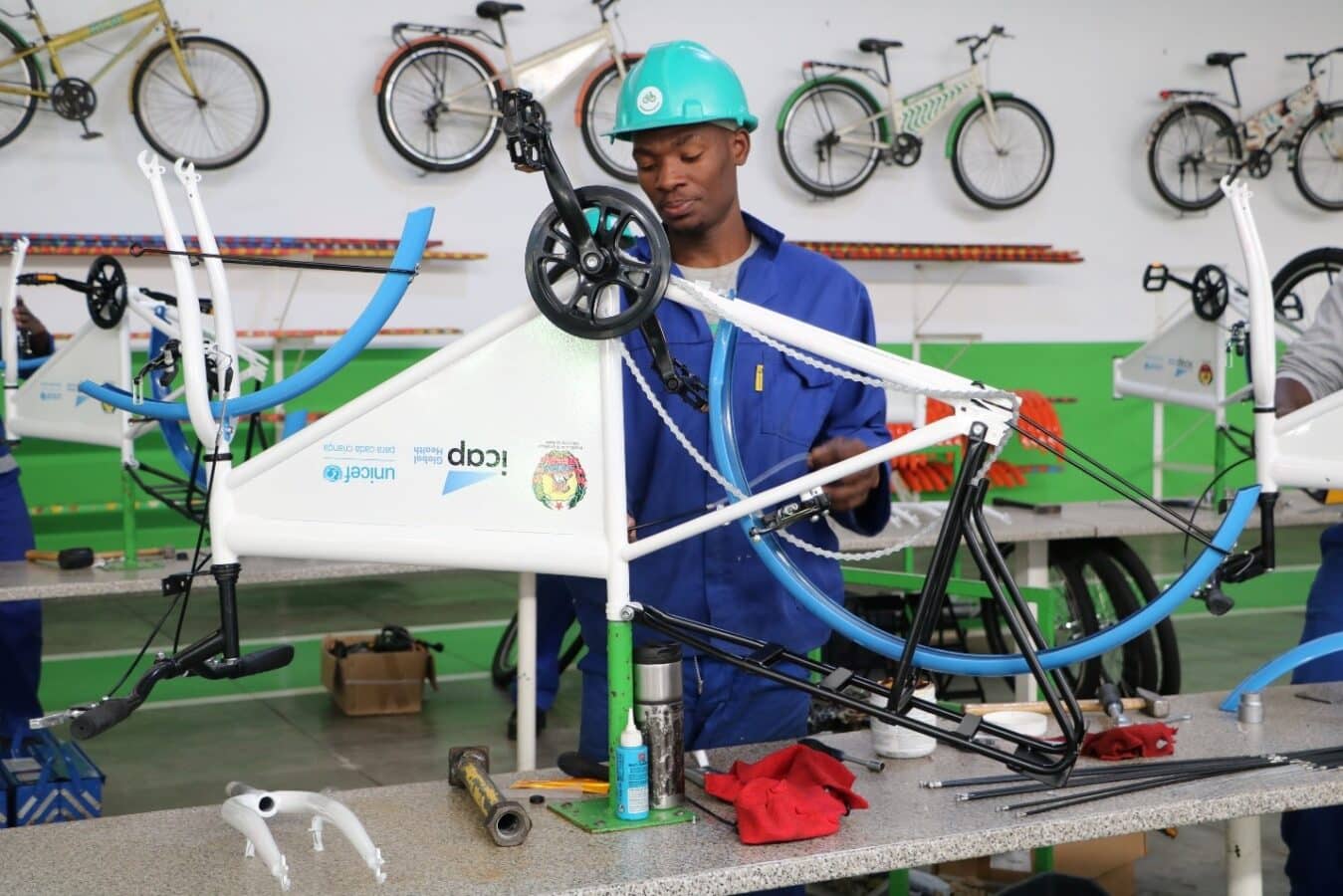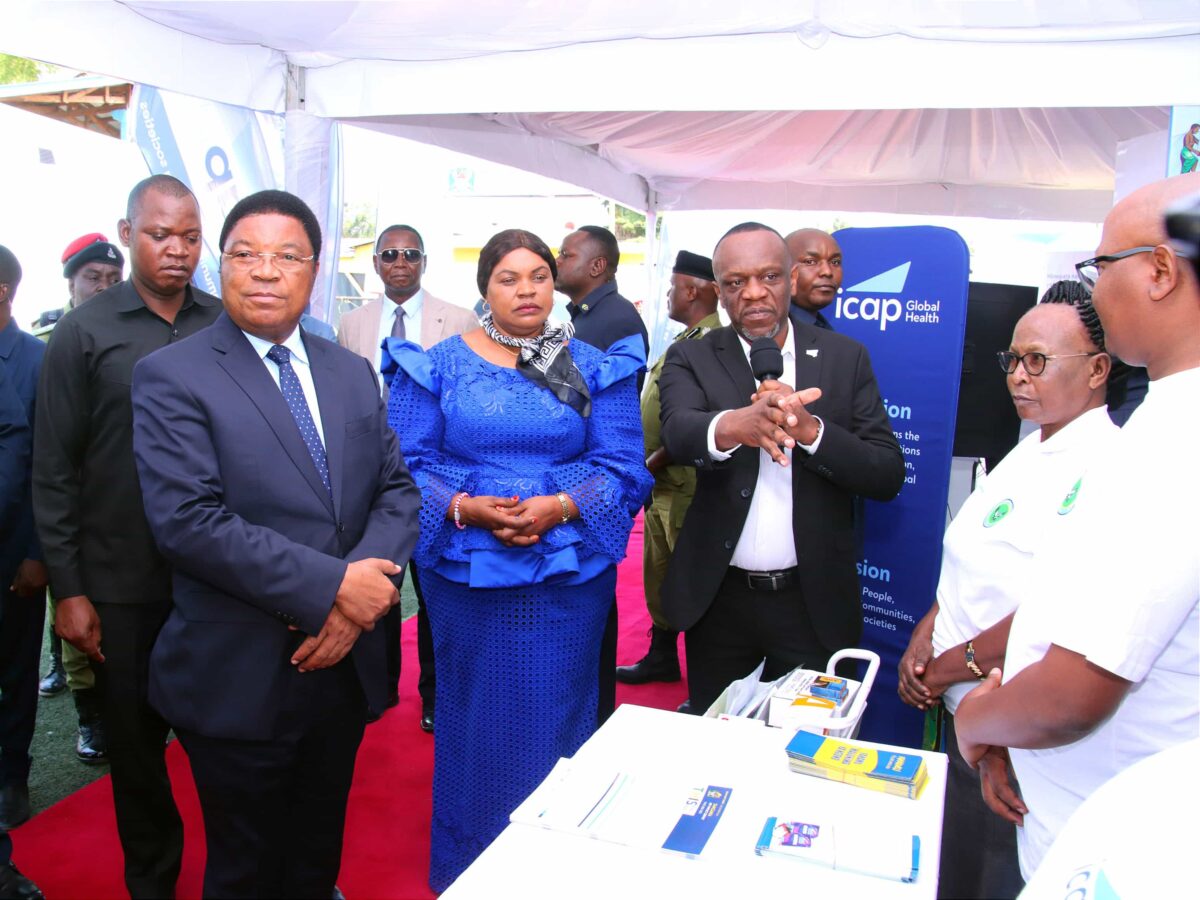Alma Jona is a single mother of two in the Philippines who has taken on numerous jobs over the years to support her family, from working at a tailor shop to serving as a contractor for the local government. When her local health facility, the Social Hygiene Clinic at Panglao Rural Health Unit (RHU), approached her about a new role working as a peer navigator, she jumped at the opportunity.
Supported by the U.S. President’s Emergency Plan for AIDS Relief (PEPFAR) through the Centers for Disease Control and Prevention (CDC), ICAP in the Philippines developed the peer navigator program to enhance and expand delivery of HIV services to key populations, including men who have sex with men, transgender people, female sex workers, and people who inject drugs. Peer navigators like Alma go into communities to provide HIV prevention services and support people living with HIV to both initiate and maintain antiretroviral treatment (ART). Peer navigators also act as liaisons between clients and care providers to ensure that any barriers clients face that may prevent engagement, retention, or re-engagement of treatment can be addressed.
The Philippines is facing the fastest growing HIV epidemic in the western Pacific, with a 411 percent increase in new HIV infections between 2010 and 2023. There were an estimated 4,700 new HIV infections in 2010 and 24,000 new infections in 2022. Men who have sex with men are disproportionately affected, accounting for most new infections. In 2022, youth ages 15-24 years of age accounted for 46 percent, or 11,000, new HIV infections.
“Central and Western Visayas are among the top regions in the Philippines with the highest burden of HIV infections,” said Loreto Roquero Jr., MD, MPH, country director of ICAP in the Philippines. “ICAP, in partnership with the Department of Health and local governments, has joined forces to enhance, expand, and accelerate HIV interventions towards epidemic control in these regions.”
ICAP in the Philippines mobilizes 12 peer navigators – and 13 facility-based case managers – across Central and Western Visayas. In 2023, peer navigators and case managers supported 7,471 individuals to get tested for HIV and initiated 567 individuals newly diagnosed with HIV on ART. The collaborative teams also launched rapid enrolment on pre-exposure-prophylaxis (PrEP) for individuals at high risk of acquiring HIV.
Before traveling to communities to provide HIV services, peer navigators undergo intensive ICAP-supported trainings on such topics as PrEP promotion, HIV counselling and testing, linkage to care, and conducting home visits of clients who have not followed up with treatment. They also learn how to input and analyze data in the official national reporting platform for gathering data on HIV, AIDS, viral hepatitis, and sexually transmitted infections.
After undergoing these trainings – as well as observing health facility staff – Alma began reaching out to friends who were linked to key population-based communities and traveling to known key population hotspots to provide information on HIV, conduct community-based testing, and offer PrEP. Within a matter of weeks of her outreach, she learned she had enrolled more people on PrEP than any other peer navigator on her team.
“I was on leave for my master’s training for two weeks and I was shocked when I came back and noticed that PrEP enrollment had more than doubled,” said Erick In-uyay, a doctor at Panglao RHU. “I realized that our peer navigator was able to do that through her efforts of going to the hotspot areas at night to offer our HIV services.”
For Alma, her success in enrolling clients on PrEP isn’t just based on her own motivation skills, but the motivation clients offer back to her.
“It is not an easy job as peer navigator,” said Alma, “but I’m satisfied every time I listen and help clients. It is very fulfilling seeing them happy every time they get non-reactive results, but I am also sad when results are otherwise. But seeing how they root me on, believe in me, and trust me in the process, is just so heart-warming.”
In Cebu, Philippines, at the Social Hygiene Clinic of the Lapu-lapu City Health Office, Shayne is another peer navigator working to reach key populations with HIV prevention, care, and treatment services. As a result of Shayne’s outreach to communities, HIV testing in the locations she reached increased significantly within the first three months of her placement and enrolment of individuals on PrEP more than tripled.
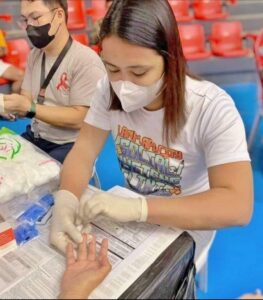
Shayne tests a client for HIV
Focusing on making HIV services easier to access, Shayne said, was the key ingredient to reaching more people.
“As a peer navigator in our city…rain or shine I make sure to deliver important messages to the community,” Shayne said. “I have lots of plans and strategies to encourage young people and others to get tested. I have active connection with most LGBT groups in our barangays [villages], which enables me to know any activities or gathering they have and provides me an opportunity to do outreach work during their events.”
The peer navigator program is a part of ICAP’s larger project in the Philippines that provides technical assistance and capacity building to fight against HIV/AIDS, tuberculosis, and malaria across the country. Over the next several years, ICAP will continue to catalyze community-based interventions to work toward the UNAIDS 95-95-95 targets with the ultimate aim of reaching HIV epidemic control in the country.
About ICAP
A major global health organization that has been improving public health in countries around the world for two decades, ICAP works to transform the health of populations through innovation, science, and global collaboration. Based at Columbia Mailman School of Public Health, ICAP has projects in more than 40 countries, working side-by-side with ministries of health and local governmental, non-governmental, academic, and community partners to confront some of the world’s greatest health challenges. Through evidence-informed programs, meaningful research, tailored technical assistance, effective training and education programs, and rigorous surveillance to measure and evaluate the impact of public health interventions, ICAP aims to realize a global vision of healthy people, empowered communities, and thriving societies. Online at icap.columbia.edu


